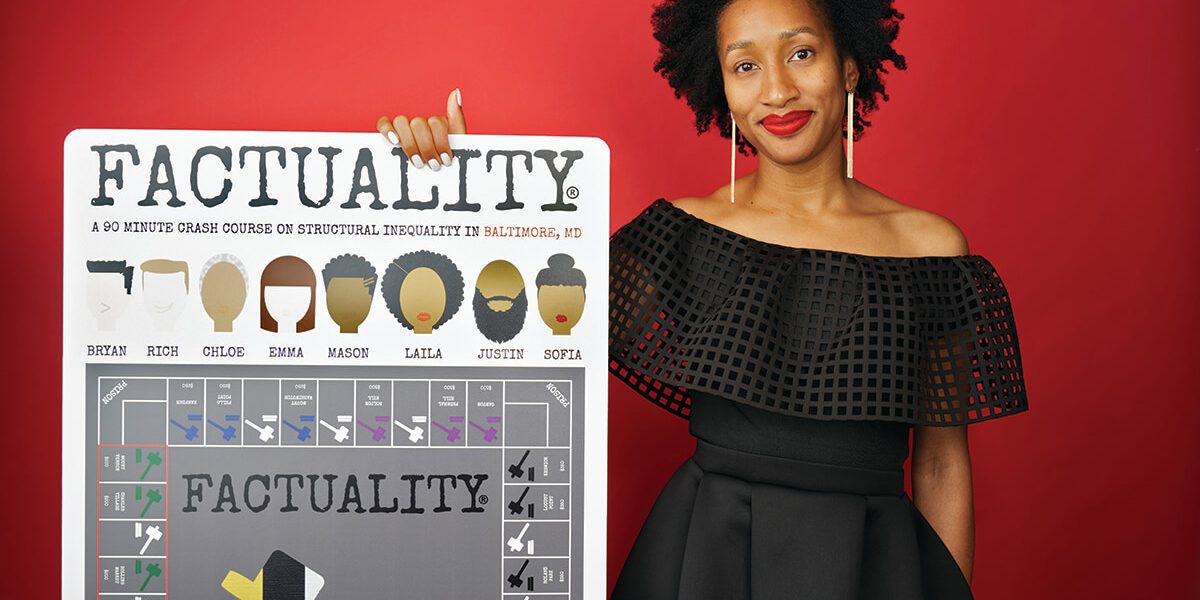News & Community
Just the Facts
A diversity-training board game gains local and national attention.
What if we played the game of Monopoly not as a top hat or a car, but as ourselves? If we factored in players’ race, gender, sexual orientation, faith, and class, how difficult would it be for them to afford properties such as Park Place?
These are the types of questions that Natalie Gillard seeks to answer with the board game Factuality, a simulated crash course on structural inequality. “As a black person, could I actually buy Boardwalk in real life?” Gillard says. “Or would I feel inclined to buy or rent property on the first quarters of the board?”
When Gillard was the director of student leadership and inclusion at Notre Dame of Maryland University in 2015, her frustration with a co-worker who expressed dissatisfaction with Gillard’s previous diversity trainings sparked the idea for a board game that would help people develop cultural competency. When she couldn’t find anything like it on the market, she created it herself.
Four years, two game boards, and about 10,000 participants later, Factuality has become a sought-after learning tool for its ability to unpack issues such as pay gaps and gentrification in a 90-minute session.
During a Factuality game, participants start by adopting a character whose identity doesn’t match their own and then, as they move around the board, they encounter fact-based advantages and limitations based on their characters’ identity.
On the Baltimore board, the properties range from Sandtown to the Inner Harbor and players learn about city-specific issues, such as redlining. After facilitating the game for thousands of people—ranging from a training at the Reginald F. Lewis Museum to conferences with the American Heart Association—this Northeast Baltimore resident says most people commit to their characters and gain a better understanding of their realities.
The gratifying result—for both Gillard and participants—is learning to empathize with strangers’ struggles. “The reward is scratching someone’s surface and seeing them recognize where we are as a city or society,” she says
